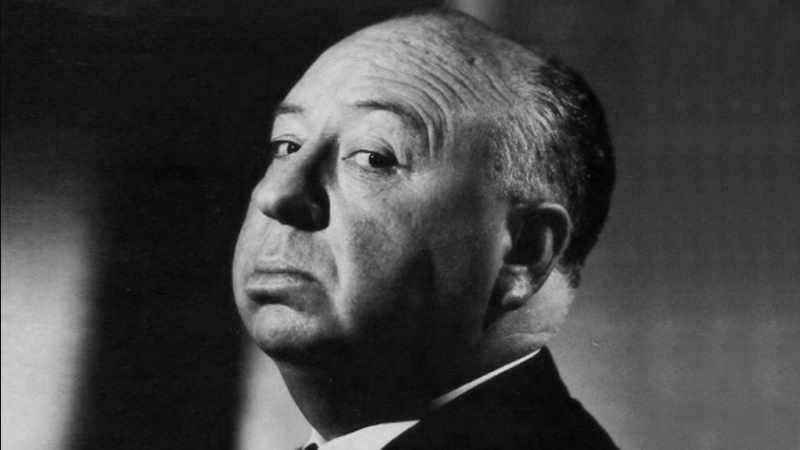Northern Irish film historian Mark Cousins has made a career of celebrating cinema, digging into the techniques and feelings that have kept us coming back for over a century. Film geeks of a certain age may remember him as the host of Moviedrome in the late 90s, introducing unique classics to late night British TV. More recently, his 15-hour opus The Story of Film is required viewing for those in love with the silver screen. His new work looks at one of film’s most celebrated sons, but in a different way than you would expect.
My Name Is Alfred Hitchcock is a visual essay of the Psycho (1960) director’s work. “Personal” insight is provided in the narration by Hitch himself, played by impressionist Alistair McGowan. Speaking from the great beyond, Cousins imagines what the filmmaker would make of the modern world, before finding the universal themes that make his movies timeless – escape, desire, loneliness, time, fulfilment, and height.
While the delivery gives the feeling of a supernatural director’s commentary, the analysis follows the format of many of Cousins’ previous films. Instead of the director’s hushed, calm Ballymena accent showing you what every door opening, colour choice, and character trait represents, this fictional Master of Suspense reveals them himself, as if we were a listening to a man reflecting on his legacy. McGowan is a convincing host, punctuating lines with laboured nasal breaths, while Cousins’ script catches Hitchcock’s conversational style, ending many sentences with rhetorical suffixes like “don’t you think?” Pleasingly, Cousins himself makes a couple of cameos in his own movie, in a nod to its subject.

As you would expect, it’s a splendid tribute to a body of work, breaking down exactly why films like North By Northwest (1959), Vertigo (1958), and Rear Window (1954) will last forever, without making things too academic. Through his leading man, Cousins presents Hitchcock as someone interested in the showmanship of movies; in playing with our discomfort. He shows that every choice has a purpose, from 1935’s The 39 Steps being filmed on a set to heighten the tension; to 1960 cinema audiences being left in the dark for 30 seconds after Psycho ends, in order to be alone with the thoughts. There are small personal insights, based on things he stated during his life. McGowan’s Hitchcock expresses his pleasure at his birthplace of Leytonstone celebrating his movies, but admitting that this genius was only really ignited once he escaped to America. The chapters on loneliness and fulfilment also tie themselves to his personal life.
However, it should be said that this is not a personal profile. Stories about Hitchcock that have emerged over the years paint a difficult picture for those who venerate him, but despite the intimate nature of the concept Cousins keeps things focus on the movies. Even mentions of relationships, such as that with wife and collaborator Alma Reville, are presented in a professional context. Cousins focuses on cinema without giving the feeling that the rest is ignored, rather it’s just a different sort of conversation.
A treasure trove of trivia, My Name is Alfred Hitchcock invites you to look at the artist from a different angle, away from the persona that he cultivated over the years. Given the amount of words and pictures devoted to the late director, it’s to Cousins’s credit that his reflection rises above the crowd.
My Name is Alfred Hitchcock is in cinemas on Friday, July 21st. On all major VoD platforms the following Monday.








